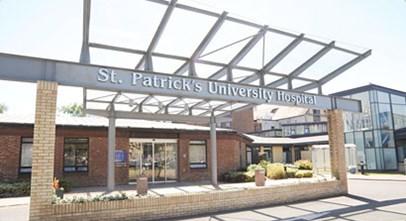Outpatient service
The outpatient service is located at our Community Dean Clinics. The outpatient service includes a consultant-led multidisciplinary assessment clinic, where a full psychiatric/medical assessment of the individual is provided.
Our clinic for the Early Detection of Psychosis is located in the Sandyford Dean Clinic, 3rd Floor Apex Building (opposite the Beacon Clinic). This clinic is for young adults who may be at high risk or in the early stages of developing psychosis and is part of our Young Adult Service. The aim of the clinic is to help people at this early stage when they have the best chance of recovery and potential to prevent further deterioration.
Day service
The day service is based at St Patrick’s University Hospital, Dublin 8. We run two day programmes specifically for individuals presenting with symptoms of psychosis:
-
Psychosis Recovery Programme
The psychosis recovery programme is a three-week programme catering for both inpatients and day patients of St Patricks Mental Health Services. Our approach is recovery-orientated and we aim to provide education around psychosis, recovery strategies and cognitive behavioural therapy skills to help participants cope with the distressing symptoms of psychosis.
The course is delivered by members of the multidisciplinary team which include a consultant psychiatrist, clinical nurse specialist, psychologist, social worker, occupational therapist and pharmacist.
-
Living Through Psychosis
The aims of the Living Through Psychosis Programme are:
- To present a bio psychosocial explanation of psychosis
- To engage each person to develop an understanding of what caused their psychosis
- To develop a plan and skills to help with a return to work/college and healthy relationships
- To maintain recovery and minimise relapse to hospital.
The programme is driven by up-to-date research findings in how we think about and understand psychosis.
The programme is one month in duration. While the programme is open to both inpatients and day patients, most individuals attend as day patients, usually following discharge from the hospital.
At present, the group runs on a Tuesday and Friday. Each group is run by two psychologists and one assistant psychologist. One psychologist is trained in dialectical behaviour therapy and cognitive behavioural therapy for psychosis. The programme is under regular review and development.
During each session a new skill is covered. Participants are provided with home practice and skill worksheets. They are also given wallet cards with skills written on them to prompt practice between sessions. Home practice is reviewed in sessions and obstacles to the use of strategies are discussed as a group.
Both programmes are open to inpatients and day patients.
Inpatient service
The inpatient service is located at St Patrick’s University Hospital, Dublin 8 and is available to those who have become medically or psychiatrically compromised by their psychosis. Read more about the inpatient service.
Early detection of psychosis
Our clinic for the early detection of psychosis is located in the Sandyford Dean Clinic in South Dublin. This clinic is for young adults who may be at high risk or in the early stages of developing psychosis and is part of our Young Adult Service.
The aim of the clinic is to help people at this early stage when they have the best chance of recovery and potential to prevent further deterioration.
The assessment involves a diagnostic interview to ascertain whether the person is at a high risk of developing psychosis, or indeed may already be suffering from a psychosis. The Structured Interview for Psychosis Risk Syndromes (SIPS) is completed in addition to clinical interviews with both the young adult and the family member.
Baseline measures of psychosis severity, mood and a global assessment of functioning are completed. The information is collated by the clinical team and the young adult and family member are given feedback on the outcome of the assessment. Detailed recommendations and a care plan are then jointly discussed and agreed. The interventions recommended can include support, information and psychoeducation, medication and psychosocial interventions, including cognitive behavioural Therapy.
If follow-up is recommended then the team will organise this either through the Young Adult Clinic or appropriate local services. This will include advice, therapies and treatments to prevent psychosis.
The psychosis recovery team
Our Psychosis Recovery Service consists of a team of experienced and qualified professionals who are dedicated in working together to treat and support individuals.
The team is well rounded with psychiatrists, specialist nurses, psychologists, occupational therapists and pharmacists.
Locations
Continue to…
How to access


